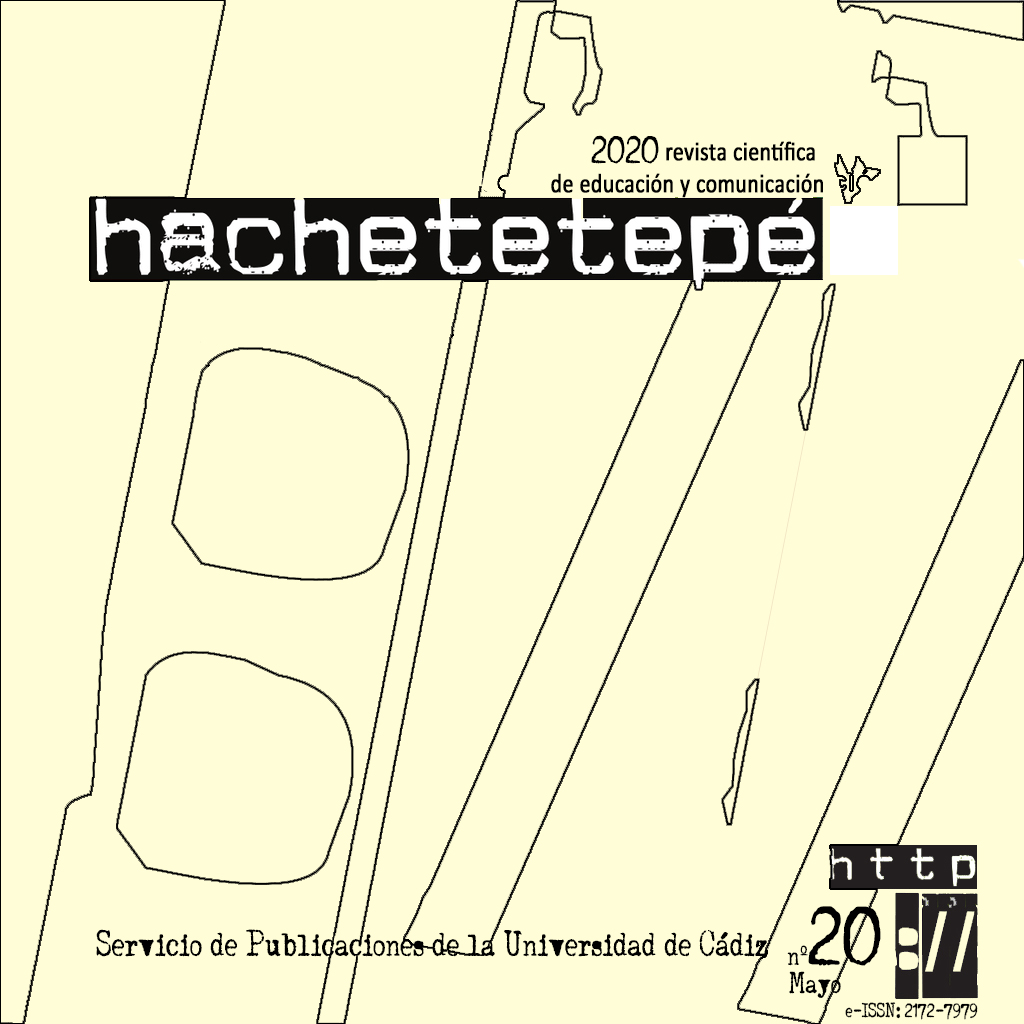Notas pedagógicas: la contribución de Mariazinha Fusari para la formación de profesores en alfabetismo mediático
Abstract
This article focuses on the contributions of Brazilian educator and researcher Mariazinha Fusari to media literacy based on an analysis of pedagogical notes. Considered as one of the pioneers in media studies, childhood and teacher education in Brazil, the text seeks to rescue its legacy through the analysis of its notes as revealing its thinking and the impact it had on its students, advisors and colleagues. The text is divided into three parts, in the first part we present the concept of media literacy that guides our research, in the second part we present a little of Mariazinha's story contextualizing her thinking from her memorial. We ended with the presentation of pedagogical notes and testimonies about how important they were in the training of the people who received them to broaden the understanding of the school communicational context and its implications for the formation and exercise of citizenship.
Keywords
Downloads
How to Cite
License

This work is licensed under a Creative Commons Attribution-NonCommercial-NoDerivatives 4.0 International License.
Those authors who have published with this journal, accept the following terms:
- They will retain their copyright and guarantee the journal the right to first publication of their work, which will simultaneously be subject to the Creative Commons Attribution License . They may be copied, used, disseminated, transmitted and publicly displayed, provided that the authorship, url, and magazine are cited, and are not used for commercial purposes. No derivative works are allowed.
- They may adopt other non-exclusive license agreements for the distribution of the published version of the work (e.g., deposit it in an institutional telematic archive or publish it in a monographic volume) provided that the initial publication in this journal is indicated.
- Disseminate your work through the Internet (e.g., in institutional telematic archives or on your website) once the manuscript is accepted, which may lead to interesting exchanges and increased citations of the published work. (See The effect of open access).
Hachetetepé. Scientific journal of education and communication does not charge a fee for the submission of manuscripts or for the publication of its articles.
References
Benavente, A. (Coord) (1996). A Literacia em Portugal: resultados de uma pesquisa extensiva e monográfica. Lisboa: Fundação Calouste Gulbenkian.
Brasil. Ministério da Educação (2015). Base Nacional Comum Curricular. Brasília: MEC/SEB. Disponible en: http://basenacionalcomum.mec.gov.br
Buckingham, D. (2005). Educación en medios. Alfabetizacion, aprendizaje y cultura contemporánea. Barcelona: Paidós.
Cortelazzo, I. (2001). Colaboração, comunicação e educação para uma cidadania concreta. En Grinspum D. y Silva, M. (Orgs). Mariazinha de Rezende e Fusari por ela mesma e pelos amigos (pp. 37-41). São Paulo: Museu LazarSegal.
Ferraz, M. (2001). Lembranças de uma amizade. En D. Grinspum y M. Silva (Orgs) Mariazinha de Rezende e Fusari por ela mesma e pelos amigos (pp. 46-47).São Paulo: Museu LazarSegal.
Ferreira, P.(2017). Modelos ideais de educação mobilizaram brasileiros ao longo da história. Agência Brasil. Disponible en: http://www.encurtador.com.br/ouWZ1
Freire, P. (1992). Pedagogia da Esperança: um reencontro com a Pedagogia do oprimido. São Paulo: Paz e Terra.
Freire, P. (1996). Pedagogia da autonomia: saberes necessários à prática educativa. São Paulo: Paz e Terra.
Freire, P. (2000). Pedagogia da Indignação: cartas pedagógicas e outros escritos. São Paulo: Paz e Terra.
Freire, P. (2004). Pedagogia do oprimido. Rio de Janeiro: Paz e Terra.
Freire, P. y Guimarães, S. (2003). Sobre educação (Diálogos) V.2. São Paulo: Paz e Terra:
Fusari, M. (1985). O educador e o desenho animado que a criança vê na televisão. São Paulo: Loyola.
Fusari, M. (1995). TV, Recepção e Comunicação na Formação Inicial de Professores em Cursos de Pedagogia. Perspectiva: Educação e Comunicação, 13(24), 67-91.
Fusari, M. (2001). Memorial. En D. Grinspum y M. Silva, (Orgs). Mariazinha de Rezende e Fusari por ela mesma e pelos amigos (pp.7-27). São Paulo: Museu LazarSegal.
Fusari, M. (2001a). Comunicação, meios de comunicação e formação de professores: questões de pesquisa. En T. Porto (Org.). Saberes e linguagens de educação e comunicação. (p. 215-245) Pelotas: Editora e Gráfica Universitária – UFPEL.
Hall, S. (1997). A Centralidade da Cultura: notas sobre as revoluções de nosso tempo. Educação & Realidade, 22(2), 15-46.
Lopes, P. (2011). Literacia(s) e literacia mediática. CIES-IUL. Disponible en: encurtador.com.br/rtAOT
Silva, M. (2001). Mariazinha, uma edu16cadora a frente do seu tempo. En D. Grinspum y M. Silva (Orgs). Mariazinha de Rezende e Fusari por ela mesma e pelos amigos (pp. 43-44). São Paulo: Museu LazarSegal.
Silva, M. (2011). O lugar do estudo das mídias na formação de professores numa perspectiva emancipatória. Tese (Doutorado em Educação) – Universidade Federal do Rio Grande do Norte, Natal.
Soares, I. (2018). Educomunicação, paradigma indispensável à renovação curricular no ensino básico no Brasil. Comunicação & Educação, 23, 7-24. doi: 10.11606/issn.2316-9125.v23i1p7-24






